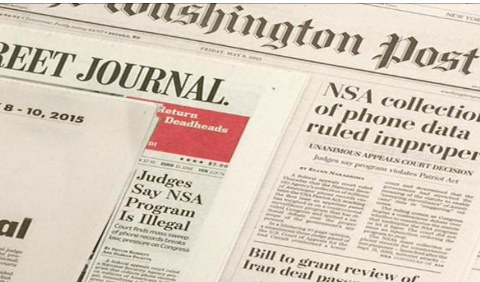

THIS series, which deals with "Whistleblowing Guidelines" for the EPO, will come in four parts. Today, in the second part, we deal with motivation and impact. Think carefully what to leak before leaking, irrespective of the safety of the act of leaking. The goal is to repair the Office (the employer), not to destroy it, after all...
Unofficial EPO Circular no. 002
Whistleblowing Guidelines
for the staff of the European Patent Office
- part 2 -
Your Motivation
Whistleblowers have many different reasons for reporting misdeeds or leaking secret documents. Your personal reasons may include, for example, a general sense of justice, concern about the future of the Organisation, disgust of some appalling behaviour you witnessed, or even a wish for revenge.
Whatever your personal motivation is, please be honest to yourself. Don't be self-righteous, don't confound base motives with heroism. Once you are certain about your feelings and your goals, and that your motivation is a valid one, you can proceed.
The potential impact of the leak
Consider carefully what the impact of the leaked document will be. If individuals exposed would be humiliated without any perspective of improvement of the situation, your action might rather do harm than good. But if a revelation could trigger National criminal investigations, even with delay, or if it could justify an internal prosecution, you would have a valid reason to take action.
Also consider how the leak will affect the organisation as a whole. The public image of the European Patent Organisation is likely to suffer - but it should be the wrong-doing exposed that causes the damage, not the exposure. Exposing wrong-doing should be done in the hope of putting an end to it. Will the public's trust in the functioning of the Office, i.e. in the integrity and competence of its staff be shattered, or will misconduct of certain EPO top managers or delegates to the AC exposed, in the hope to put an end to it? Is the significance of the leaked documents obvious to an outsider, or can they be misinterpreted?
A leak could also cause internal damage, e.g. by destroying the trust among colleagues within a unit exposed in the leak.
Choose the recipient of your leak with care. Online media, newspapers, TV channels, weblogs, and politicians have in many cases acted upon EPO leaks. Certain blogs attract a high number of readers but may be perceived as little credible by some. Some classical media may refuse to act, others will investigate carefully first before reporting. If you contact politicians of your host or home country, it is usually best to contact members of parliament, or possibly embassadors, as ministers are generally too occupied to take note, and local or regional governments do not have enough influence to tackle an international organisation.
If the documents are likely not to have an impact at all, there is no reason to leak them. And never leak false information! Credibility is a whistleblower's most valuable asset.